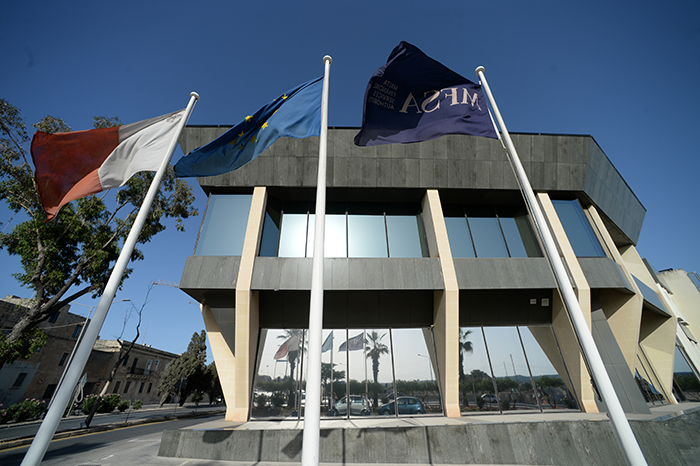Public sector employment has been on the rise for almost a decade, increasing by 10,000 workers since 2013, roughly representing a 20 per cent increase.
The figures come from National Statistics Office (NSO) data and were placed under the spotlight by The Malta Chamber of Commerce, Enterprise and Industry (The Malta Chamber) as part of its labour market proposals for the 2023 national budget.
“Whilst it is understandable that the public sector needs staffing at certain levels, it is also evident that there is overstaffing across various strata and in various Government departments and entities. It runs contrary to business competitiveness to have a situation where Government is indirectly soliciting human capital from the private sector,” the Malta Chamber cautioned.
“Furthermore, public sector outsourcing is not captured in statistics. The real public sector employment share is therefore significantly higher than indicated by official statistics.
“Additionally, since many subcontracted workers are being recruited through temping agencies and remain on the books of temping agencies throughout the duration of their employment our labour force statistics are likely to be inflated in terms of employment in professional services under which such companies are categorized and understated across all other sectors in terms of both public and private sector employment.”
On the issue of excessive public sector employment, the Malta Chamber recommends the Government should:
- Conduct an independent audit exercise to take stock of the skills and output of the human resources currently employed by Government, with surplus staff seconded to the private sector;
- Adopt a good practice of avoiding recruiting persons who are in full-time adequately paid employment with the private sector, within the Public sector, towards economic recovery and long-term sustainability of public finances.
It also highlighted the issue of rising wages, which The Malta Chamber said it was particularly concerned about:
“The Malta Chamber is particularly concerned about significant wage inflation characterised by multiple rounds of wage revisions within the same year for jobs in the private sector that require some level of skill.”
It added that this issue will not only erode Malta’s competitiveness in export markets, but will also negatively impact people on lower income, “as they will have to cope with persistent inflation in the cost of services that is neither imported nor is attributed to the war in Ukraine”.
Overall, The Malta Chamber stressed that the “dire situation” Malta’s job market is in is the result of excessive public sector employment, a lagging education system, inefficient TCN recruitment procedures and poor retention of skilled foreign workers.
On the issue of TCNs, The Malta Chamber argued that while concerns have been raised that employing such nationals in the local workforce would have a downward impact on wages, data has shown that salaries have increased across all sectors and levels, “albeit at a slower rate among the unskilled”.
And, while the Chamber said it recognises that TCNs cannot be the answer to all local labour shortages, it also firmly believes:
“Having recognised how essential TCNs are to short-and-medium-term functionality of the Maltese economy, the government should undertake particular efforts to ensure that the related visa and permitting process takes place in an expeditious manner.”
Here, The Malta Chamber proposes:
- Ensure that once a TCN is approved to work in Malta, he or she should have access to a free labour market without any derived ownership rights of the original employer when changing job;
- Widen the scope of the Key Employment Initiative scheme to attract individuals in possession of certain critical skills and qualifications that are running short in the labour market;
- Address the issue of visa delays with relevant service providers to ensure that appointments are granted within a reasonable time frame;
- Adopt better enforcement and sanctioning regime, particularly in relation to foreign workers to curb blatant abuses;
- Undergo a full and comprehensive study on Malta’s optimal and sustainable carrying capacity.
Lastly, it also gave a series of proposals on work incentives, revolving around four interlinked and reinforcing policy priorities for nurturing, upskilling, attracting and retaining talent:
- Introduce a scheme whereby households can claim a tax deduction on fiscal receipts related to services rendered for home renovations, repairs, cleaning and maintenance work, to curb tax abuse through undeclared work;
- Ensure that workers who qualify for a pension before retirement age and choose to take it would be given the possibility to work on a part-time basis;
- Revise the capping on pensionable income, as salaries have been increasing for many years and the cap on pensionable income has remained stagnant;
- Introduce an auto enrolment with opt-out system for employees to incentivise the take-up of supplementary pensions particularly by younger employees.
Trust, talent and transformation: The Malta Institute of Accountants’ vision for growth
CEO Maria Cauchi Delia believes accountants are ‘the bedrock of trust in Malta’s economy’
MFSA to ‘step up’ supervision of AI in financial services
Regulatory strategy is no longer just a compliance function
Teva Malta defends pay offer as GWU orders industrial action at Bulebel plant
The union said the decision to commence industrial action 'was not taken lightly,' but followed months of unsuccessful negotiations






